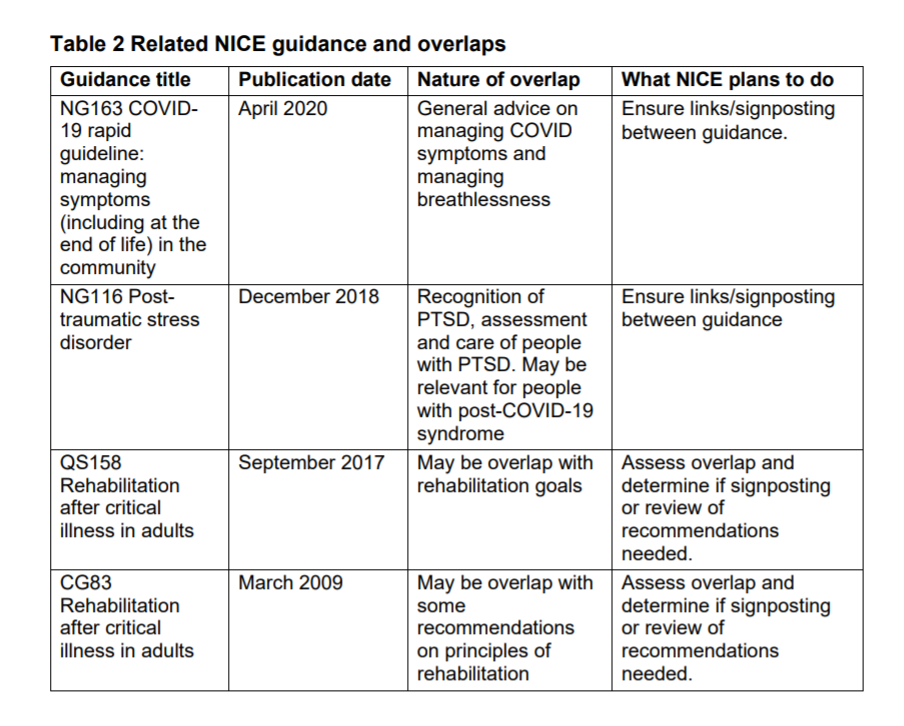3 Who the guideline is for
The guideline will be of interest to:
• Health and social care practitioners, commissioners and providers of NHS-funded healthcare services
• People using services, their families and carers. It may also be relevant to providers of private healthcare services.
4 Equality considerations
An
equalities impact assessment was carried out during scoping. The assessment:
• lists equality issues identified, and how they have been addressed
• explains why any groups are excluded from the scope. The guideline will look at inequalities relating to accessing healthcare services and prevalence of ongoing symptoms in different population groups.
5 Proposed themes and questions
This section lists the proposed key themes and questions that we will consider when developing the guideline. We will look at evidence in these areas when developing the guideline, but it may not be possible to make recommendations in all areas. This section also lists themes that will be excluded; these are outside the scope of the guideline, and we will not look at evidence in these areas.
Key themes
• Investigations and assessment
• Management and rehabilitation
• Referral
• Inequalities
• Lived experience of people Key questions
• Investigation and assessment
− What risk factors are associated with developing post-COVID-19 syndrome?
− What is the prevalence of symptoms or clusters of symptoms (physical and mental health) and problems carrying out usual activities, including work, education and leisure, among people who have symptoms of COVID-19 for a duration of 4 to 12 weeks?
− What is the prevalence of symptoms or clusters of symptoms (physical and mental health) and problems carrying out usual activities, including work, education and leisure, among people who have symptoms of COVID-19 beyond 12 weeks?
− What investigations should be carried out to determine appropriate management or treatment of symptoms?
• Management and rehabilitation
− What pharmacological and non-pharmacological interventions improve the ongoing physical and mental health symptoms and problems carrying out usual activities, including work, education and leisure, following acute COVID-19?
− What monitoring is helpful to assess deterioration or recovery in people with ongoing physical and mental health symptoms and problems carrying out usual activities, including work, education and leisure, following acute COVID-19?
− What symptoms or signs indicate that referral to specialist care is needed for assessment or management of post-COVID-19 syndrome?
− What components should be included in a service model for the delivery of services to people with post-COVID-19 syndrome?
• Lived experience of people
− What are the views and experiences of patients, their families and carers about:
o signs and symptoms of post-COVID-19 syndrome?
o access to services?
o how their symptoms were assessed?
o management of symptoms and rehabilitation?
o the patient care pathway?
o information and support provided?
Continued in next post

